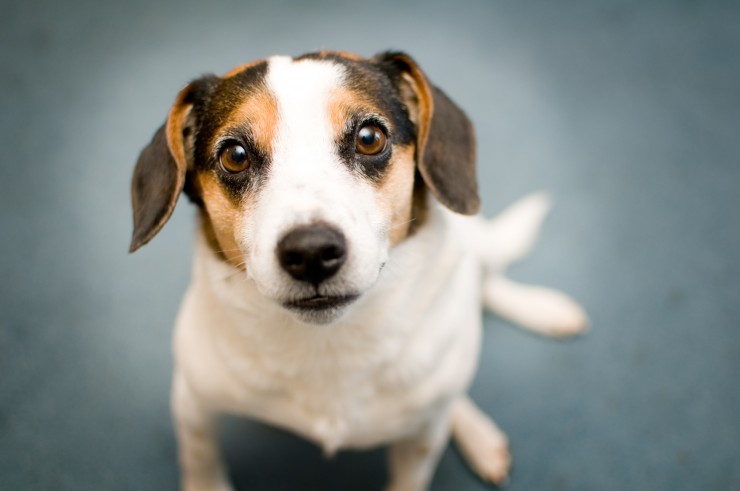So often anxious and fearful dogs turn up to my clinic, these patients are often very difficult, and sometimes dangerous, to deal with. Many owners do not realize that the way they treat their dog whilst in the clinic has everything to do with their dogs concurrent behavior. Here are seven sure-fire ways of helping ensure your dog is more relaxed at your local clinic:
1.) As is always true in Veterinary medicine ?prevention is better than cure. It is always best to start off training your dog at an early age that the Vet clinic is a safe and fun place to go. Many clinics offer a puppy preschool for puppies aged from 8 ?16 weeks in which they interact and have fun in the clinic reception. Puppies that have been socialized in the Veterinary clinic from a young age seem very receptive to coming back and in fact enjoy their time spent with the Vet!
2.) Many Veterinarians try and make a dog's visit to them as fun as they can. In my clinic I always have a jar of treats (dog biscuits, liver treats, wet food) available to give to dogs when they come into the room, after or during an injection, and when they leave if they have behaved well.
3.) In terms of fearful or anxious dogs, it is very important to ignore these unwanted fearful behaviours rather than pandering up to them. So often I see fearful or anxious dogs arrive, and the owners think the best thing to do is to pat their dog and tell them "don't worry ?everything will be just fine". The shame with this is that dogs (sadly) do not understand English and take this attention as "Good boy for being fearful! That is the right way to act at the clinic!". When you see it like this, it is very important to IGNORE fearful or anxious behaviours at the vet and praise and encourage appropriate non-fearful behaviours.
4.) If a dog is very fearful and is having a lot of issues in the clinic then I usually get clients to come back a couple of times a week to bring their dog in ?not for any consultation work or surgery, but just to say hello!! We tell clients who own these dogs to bring them in as often as they can or like to and when they come in we give them lots of attention and treats (BUT as above ONLY when they are not acting fearfully, otherwise we just ignore them). Some clients with very anxious dogs just start out by taking their dog to the Vet clinic car park a few times per week for a couple of weeks, followed by trips in to the clinic waiting room for another month and then trips into the consultation rooms (when the clinic is quiet so this can be done).
5.) I also have one particular Vet nurse out the front of the clinic, and this nurse gives any fearful or anxious dogs the attention they need at the right times. It is quite good allowing your dog to form a bond with one or two staff members in particular at the clinic so that they want to return and see them again! It is also important to find the treat or treats that best work to get your dog's attention and allay his or her fears
6.) When your dog does actually need a veterinary visit, it is important not to book in too many routine things in one go! If a dog is having multiple vaccines, split these up so they don't all have to be given on one day. Likewise, it wouldn't be the best idea to book your boy or girl in for a nail clip, vaccinations, ear cleaning and a grooming! Keep the routine procedures light for a while. Likewise if you have a very anxious of fearful dog, if you can put off these routine procedures, do!
7.) Finally I always encourage my clients to handle their dogs at home and carry out "fake exams". This means flipping the lip and having a look at his or her teeth, checking in the ears, feeling the legs and between the toes on each paw, feeling the abdomen and picking your dog up and put him or her on a table!! If you can do this several times a week with rewards for good behaviour then this will definitely put you in good stead for the actual physical exams your Vet carries out.
Ask a Vet(http://www.onlinepetdr.com/) - You can get the most important health information for your pet when you need it the most. If you have a question that needs to be answered straight away, check this page: - Ask the Vet(http://www.onlinepetdr.com/ask-the-vet). Dr Edwards and the team of Online Veterinarians will answer your question as soon as possible.

 Did You Know That Kennel Cough Affects Cats Too? Feline Bordetellosis
Did You Know That
Did You Know That Kennel Cough Affects Cats Too? Feline Bordetellosis
Did You Know That
 How To Keep A Welsh Springer Spaniels Coat Looking Good
How To Keep A Wel
How To Keep A Welsh Springer Spaniels Coat Looking Good
How To Keep A Wel
 The Five Least Expensive Dog Breeds To Insure
The Five Least Ex
The Five Least Expensive Dog Breeds To Insure
The Five Least Ex
 Eye Problems In The Miniature Pinscher And Similar Dog Breeds
Eye Problems In T
Eye Problems In The Miniature Pinscher And Similar Dog Breeds
Eye Problems In T